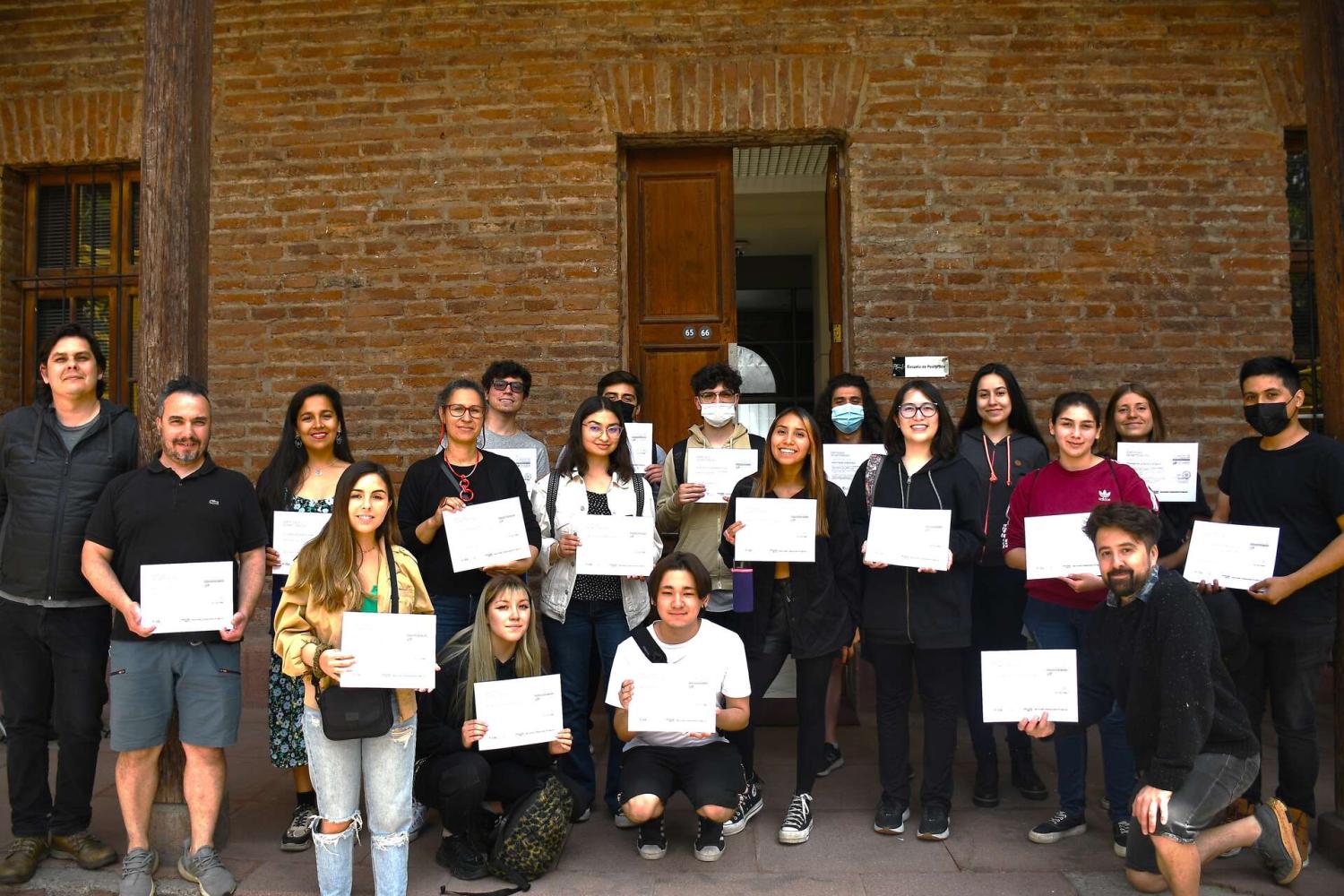VIP Teams from Universidad de Chile and ICESI Participate in an International Bootcamp Challenge within the Vertically Integrated Projects Program

In an intense day of work, students and faculty members of the College of Architecture and Urbanism at the University of Chile and from the Faculty of Engineering and Design of the ICESI University of Colombia took part in the first version of the VIP Latin America Bootcamp Challenge. The Teaching and Learning Center at the College of Architecture and Urbanism at the University of Chile developed and organized the event in collaboration with ICESU University, the Vertically Integrated Projects International Consortium and the Georgia Institute of Technology. Dr. Edward Coyle welcomed students and faculty members in the consortium's name. He pointed out that this encounter was a unique milestone in the consortium's history.
Professor Massimiliano Farris (Geography), with the collaboration of professors Lorna Lares (Design) and Gabriel Felmer (Architecture), led the Chilean VIP team. Teaching assistant Silvana Cuevas and monitor Moyra Allende are also part of the team with the students of the course "Sustainability and Hegemony in the Forestry Industry: Processes, Objects, and Territory." Their mission was to propose actions to address the environmental decline that affects commune 22 of the city of Santiago de Cali in Colombia. Such an area has coexisted with significant urban growth, which, due to its deregulation, has affected the quality of life of its inhabitants and seriously impacted the area's biodiversity. During the Bootcamp, students met Dr. Andrés López Astudillo, an expert in Sustainability and Faculty member at ICESI University, with whom they discussed the problems afflicting the Colombian city.
ICESI University VIP team, led by professors Helena Cancelado and Andrés Navarro from the Faculty of Engineering and Design, faced the water scarcity in communes of the eastern sector of Santiago. Students in the VIP team pretend to be consultants hired by a local town hall to propose a sustainability action program to address the water crisis. To investigate deep into the subject, ICESI's team talked with Professor and environmental scientist María Fragkou, at the University of Chile, about the critical issues of the water crisis - and its impact - in the Chilean case.
At the end of the Camp, both teams presented their proposals to an international committee of scholars led by Dr. Paula Gómez (GTRI). Leonardo Jaramillo (ICESI University), Ana Dorly Jaramillo (Vice President of the Fundación Rivers and Cities and consultant for the Community Network of Urban Forests of the city of Cali), Claudio Aliaga (Urban Advisor of the Town Hall of Quilicura), and Dr. Pedro Soza (University of Chile) also took part on the critique sessions.
The Chilean team presented their vision of a single university campus for ICESI as a project integrated with its environment and community. Their proposal allowed the reduction of vehicular fluxes while developing a sustainable housing policy for the area focused on preventing urban expansion. The team's proposal also sought to generate community spaces in the territory by adding new urban routes to promote public transport and cycling to discourage car use.
The Colombian team presented a program for regulating and monitoring water consumption at the communal level. Their proposal considered a partnership with the sanitation company that manages water services. They also stated the use of Smart Contracts and Smart Properties in their submission to optimize the water cycle. Moreover, the VIP team establishes a system of territorial traceability to monitor water use, helping to track its use and the effectiveness of public policies regarding this matter.
Lastly, Cristian Celedón, University of Chile´s Educational Advisor and local VIP Coordinator, stated that the experience allows participants to discover relevant opportunities to innovate while being able to design courses that challenge students and allow them to solve problems on an active learning framework.